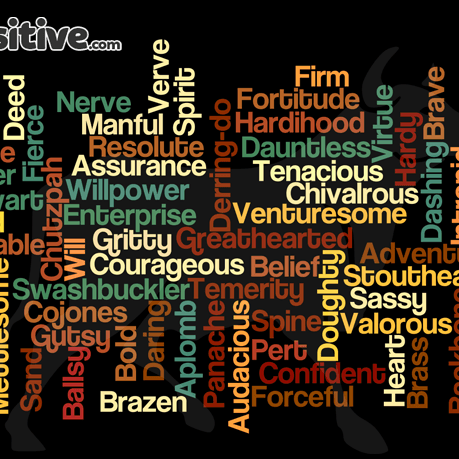
Lastly, if need be, you can make this term more vulgar by saying, “Chickenshit.” 11. Like wimp out, you can also use the phrasal verb, “chicken out.” However, chicken out can also mean to back out or renege on a previously agreed deal. Not to be confused with chick, which is slang for a young, often attractive girl. It makes sense, right? Chickens aren’t exactly the bravest of birds like a hawk or an eagle. If someone is chicken, it means they are a coward. In English, we commonly use animal comparisons to describe the attributes of people. It could also be derived from the combination of the words “puss” and “wimp”. Wuss or wussy is a euphemism for pussy (see below). This word is derived from sister (sis), and is used to call (especially a man) girly, effeminate and weak. This means to not do something because of fear. There is also a phrasal verb that you can use, to wimp out. This word was apparently created by college students in the 1960s, but the reason is not exactly known, however, it might refer to a character from the popular Popeye comic.Ĭalling someone a wimp might not only indicate their cowardice, but also that they are strange or nerdy. Therefor, if you call a man a pansy the general connotation is that he is weak and effeminate (sorry girls, but many of these words are associated with the female gender being fearful–not our opinion here at RealLife).īe careful, as nowadays this expression can be extremely offensive when referring to a male homosexual. This word is the name of a flower (or formerly a woman). Why a cat? Well, most cats are easily startled–and, as we’ll see, this isn’t the only insult associated with felines.

This is an expression you might commonly here on the playground or used between young siblings.įraidy comes from fraid (afraid), and scardy is obviously derived from scared. If you are older than 12, you probably will not say it, but it’s at least good to understand. Getting into more contemporarily common expressions, we have these two idioms. This expression is not as common as it once was, and it gives reminds me of something Clint Eastwood might say in an old western film. We love expressions using colors, right? Like blue meaning someone is sad, or green for jealousy, but what could yellow describe? Well, in English, if someone is yellow (or yellow-bellied) they are a coward! This is a bit more informal and colloquial than cowardly, and you might commonly hear the expression, “You’ve gone soft,” meaning someone that was once brave is now acting cowardly (not uncommon with age!). It makes perfect sense if you think about the following: They aren’t able to make hard decisions. This is another way to say someone is a coward. Some examples of use might be, “Stop being a coward,” or, “You’re a coward,” if your friend is afraid to do something.

Therefor, calling someone a coward would be considered an insult. While fearful might be used more to describe someone in a certain situation, cowardly would be more of a character trait–someone who is always easily scared. Not to be confused with fearsome, which is something that causes fear. This word is good for use in writing, but not necessarily in conversation, and certainly would not be very insulting.

SYNONYMS FOR BRAVE FULL
This is one of the most basic ways to talk about someone or something that is easily scared–they are literally full of fear, fearful. These terms are listed from most formal to least formal/vulgar 1. Remember, a rich vocabulary can greatly increase your perceived fluency, so learn and memorize several of these useful synonyms and your English will be that much more impressive. Be sure to pay attention to the etymology of some of these words.

It has developed from a complex history and the influence of many different languages. This got me thinking: In English, we have a ton of words, slang, and colloquialisms around calling someone cowardly.Īs I kept thinking of more and more terms for my student, I thought, “Hey, this would make a great article for the community.” So, here you have it, 50 ways to talk about someone’s cowardice.Īs you will see, many of these are words that we might call our siblings or close friends (jokingly of course).Įnglish is very rich, with one of the largest vocabularies of any language. The other day I was teaching a student and he was wondering what other ways he could say that someone was fearful, or a coward.


 0 kommentar(er)
0 kommentar(er)
